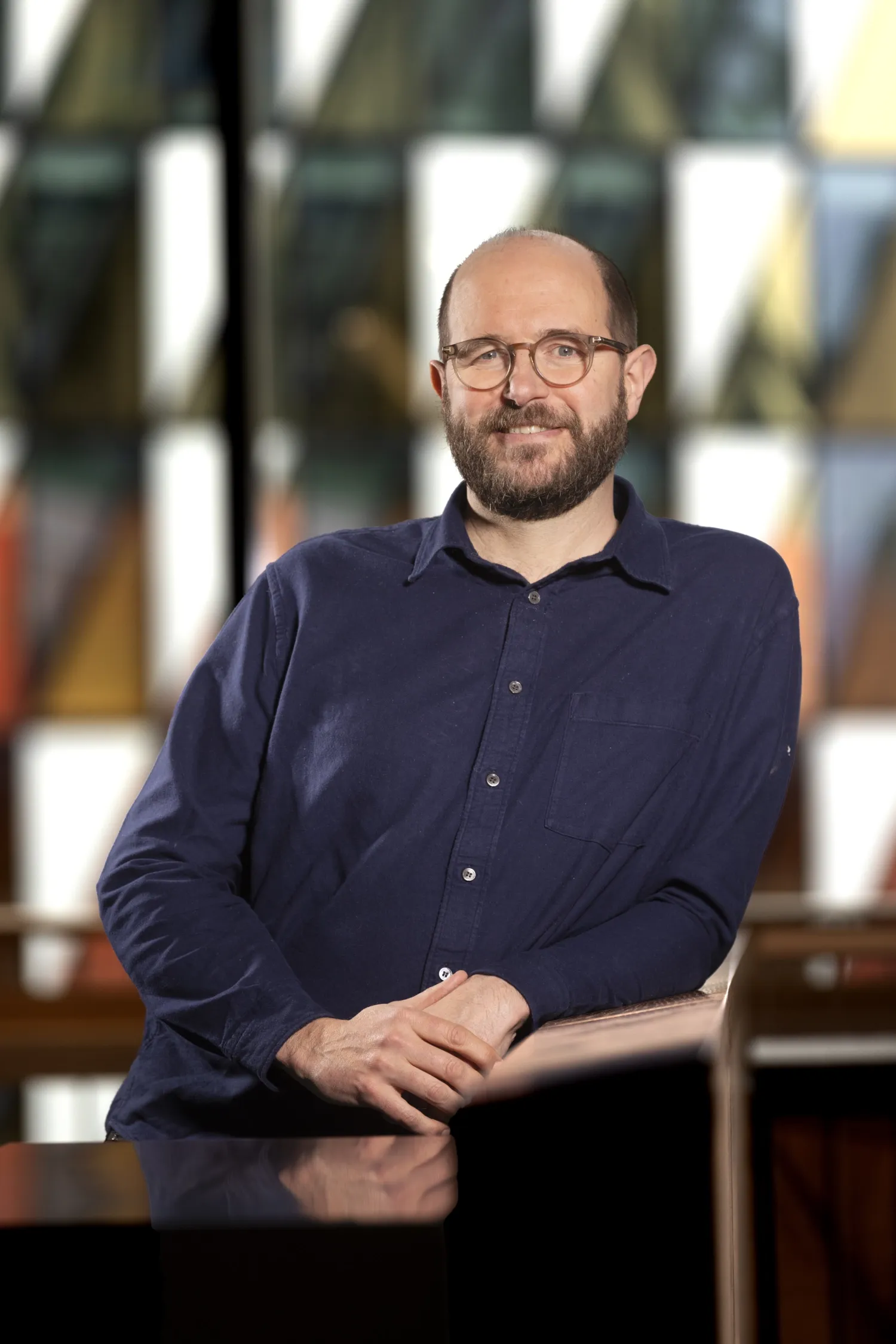Schizophrenia is a disease that causes great suffering, but today's methods of treatment are inadequate in dealing with it. Jens Hjerling-Leffler studies what happens in the brain during the phase of life in which the disease often debuts in the hope of promoting the development of more effective drugs. Meet one of the new professors of Karolinska Institutet who will participate in this year's installation ceremony at Aula Medica on 9 October.
Text: Karin Tideström, for KI's installation ceremony booklet 2025
What are you researching?
"I'm researching what happens in the brain in the transition from adolescence to adulthood and how these processes are linked to the risk of developing psychiatric diseases, particularly schizophrenia. This and many other psychiatric diseases are very much inherited, which means that vital clues can be found in the DNA."

How do you hope your results will be used?
"Psychiatric diseases cause great suffering and pose a huge challenge to society. Current treatment methods aren't good enough as they have severe side effects and mitigate only some of the symptoms. Since we don't understand the biology behind the diseases, drug development has in some respects come to a halt. By studying how genes operate at the time of life in which schizophrenia usually manifests and the processes involved, we hope to bring the pharmaceutical industry back onto the field."
What are your main findings to date and what's your next step?
"We've shown that the likely cause of schizophrenia is a disorder of the neurons rather than of the brain's support cells. Genetics points to three areas in the brain that deserve closer study: the forebrain, the hippocampus and the amygdala. We've also shown that energy production is probably affected in schizophrenia since patients have fewer mitochondria in their nerve cells. At the moment, we're trying to understand more about the mechanisms driving brain development in adolescence, a phase of life in which synaptic pruning is particularly active. The hypothesis is that these processes malfunction in some way."
About Jens Hjerling-Leffler
Professor of Molecular Psychiatry at the Department of Medical Biochemistry and Biophysics
Jens Hjerling-Leffler was born in 1975 in Stockholm but grew up outside Lund. At university he studied biology and vacillated for a long time between a career in field studies or neuroscience. Ultimately, neuroscience won the day and after earning his PhD at Karolinska Institutet in 2006, he spent his postdoc period at University College London and New York University. Since 2011 he has been leading a research group at Karolinska Institutet focusing on psychiatry and brain development during adolescence. Jens Hjerling-Leffler was appointed Professor at Karolinska Institutet on 5 February 2025.






